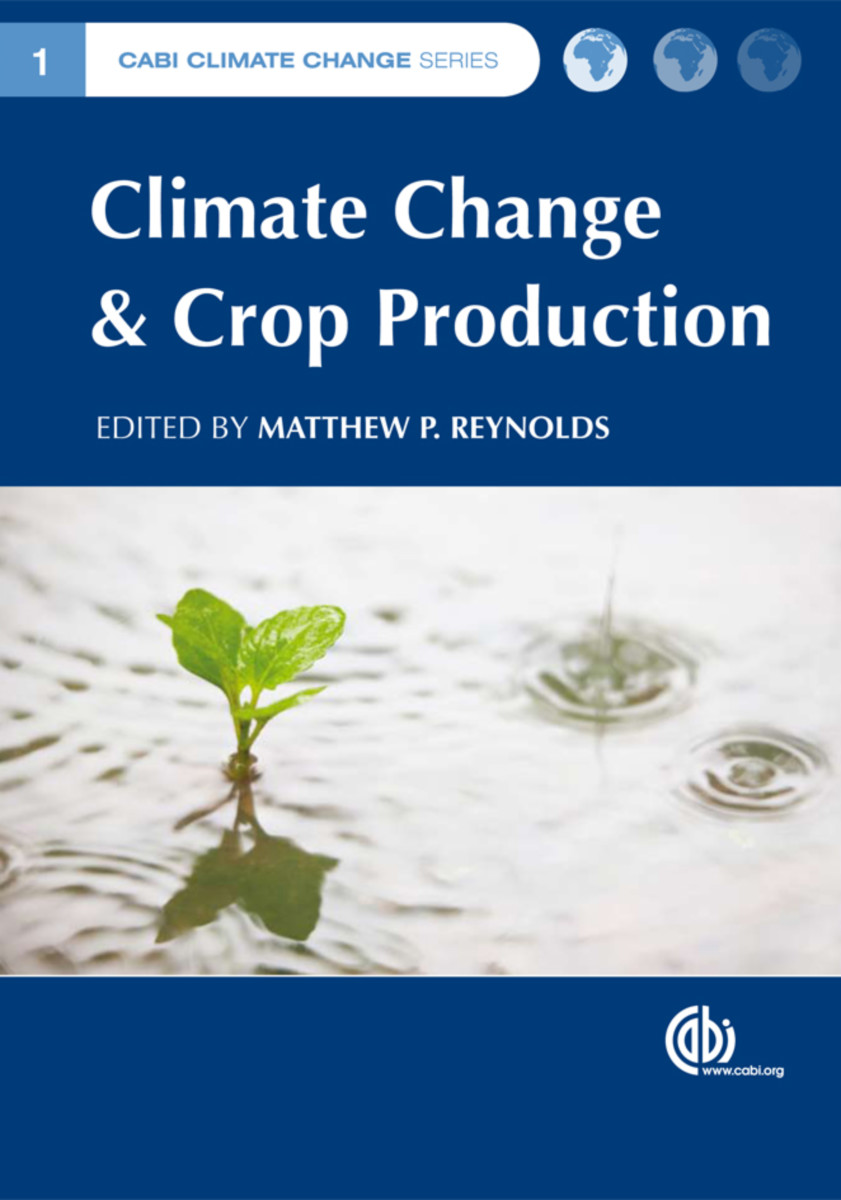- Publisher
CABI - Published
10th October 2017 - ISBN 9781786393081
- Language English
- Pages 308 pp.
- Size 6.75" x 9.5"
- Publisher
CABI - Published
12th July 2010 - ISBN 9781845936334
- Language English
- Pages 308 pp.
- Size 6.75" x 9.5"
Current trends in population growth suggest that global food production is unlikely to satisfy future demand under predicted climate change scenarios unless rates of crop improvement are accelerated. In order to maintain food security in the face of these challenges, a holistic approach that includes stress-tolerant germplasm, sustainable crop and natural resource management, and sound policy interventions will be needed. The first volume in the CABI Climate Change Series, this book provides an overview of the essential disciplines required for sustainable crop production in unpredictable environments. Chapters include discussions of adapting to biotic and abiotic stresses, sustainable and resource-conserving technologies and new tools for enhancing crop adaptation. Examples of successful applications as well as future prospects of how each discipline can be expected to evolve over the next 30 years are also presented. Laying out the basic concepts needed to adapt to and mitigate changes in crop environments, this is an essential resource for researchers and students in crop and environmental science as well as policy makers.
"In summary, this first book of the CABI series on climate change is a valuable contribution for all those working along the human food chain and will be very helpful for students, teachers and researchers interested in agricultural sciences such as plant breeding and plant cultivation, as well animal and human physiology, nutrition and health. It could also be helpful for politicians, who carry responsibility for human well-being in the near future as well as in the long-term."
Gerhard Flachowsky, Institute of Animal Nutrition, Friedrich-Loeffler-Institute (FLI), Germany - , Animal Feed Science and Technology
"Over the whole, this book provides an advanced coverage of wide range of topics related to climate change and agriculture."
D. K. L. MacKerron - , Experimental Agriculture
"Is the book recommended reading? Yes, particularly for students and academics in crop science and agronomy....If you are involved with climate change and agriculture, this book must be on your bookshelf as it comprehensively deals with every aspect of crop production under environmental stress. I believe no other book on the subject matches its breadth and depth."
Quarterly Journal of International Agriculture
1: Adapting crops to climate change: a summary -- Matthew P. Reynolds and Rodomiro Ortiz
2: Scenarios of climate change within the context of agriculture -- Andy Jarvis, Julian Ramirez, Ben Anderson, Christoph Leibing and Pramod Aggarwal
3: Economic impacts of climate change on agriculture to 2030 -- David Lobell & Marshall Burke
4: Preventing potential disease and pest epidemics under a changing climate -- Anne Legrève and Etienne Duveiller
5: Breeding for adaptation to heat and drought stress -- Matthew Reynolds, Dirk Hays and Scott Chapman
6: Breeding crops for tolerance to salinity, waterlogging and inundation -- Daniel Mullan and Ed Barrett-Lennard
7: Multi-location testing as a tool to identify plant response to global climate change -- Hans-Joachim Braun, Gary Atlin and Thomas Payne
8: Genetic approaches to reduce greenhouse gas emissions: increasing carbon capture and decreasing environmental impact --Martin A. J. Parry and Malcom J. Hawkesford
9: Greenhouse gas mitigation in the main cereal systems: rice, wheat and maize -- Ivan Ortiz-Monasterio, Reiner Wassmann, Bram Govaerts, Yasukazu. Hosen, Nobuko Katayanagi and Nele Verhulst
10: How conservation agriculture can contribute to buffering climate change -- Peter Hobbs and Bram Govaerts
11: Management of resident soil microbial community structure and function to suppress soilborne disease development -- Mark Mazzola
12: Biotechnology in agriculture -- Ryan Whitford, Michael Gilbert and Peter Langridge
13: GIS & crop simulation modelling applications in climate change research -- David Hodson and Jeff White
14: Statistical models for studying and understanding genotype x environment interaction in an era of climate change and increased genetic information -- José Crossa, Juan Burgueño and Mateo Vargas


